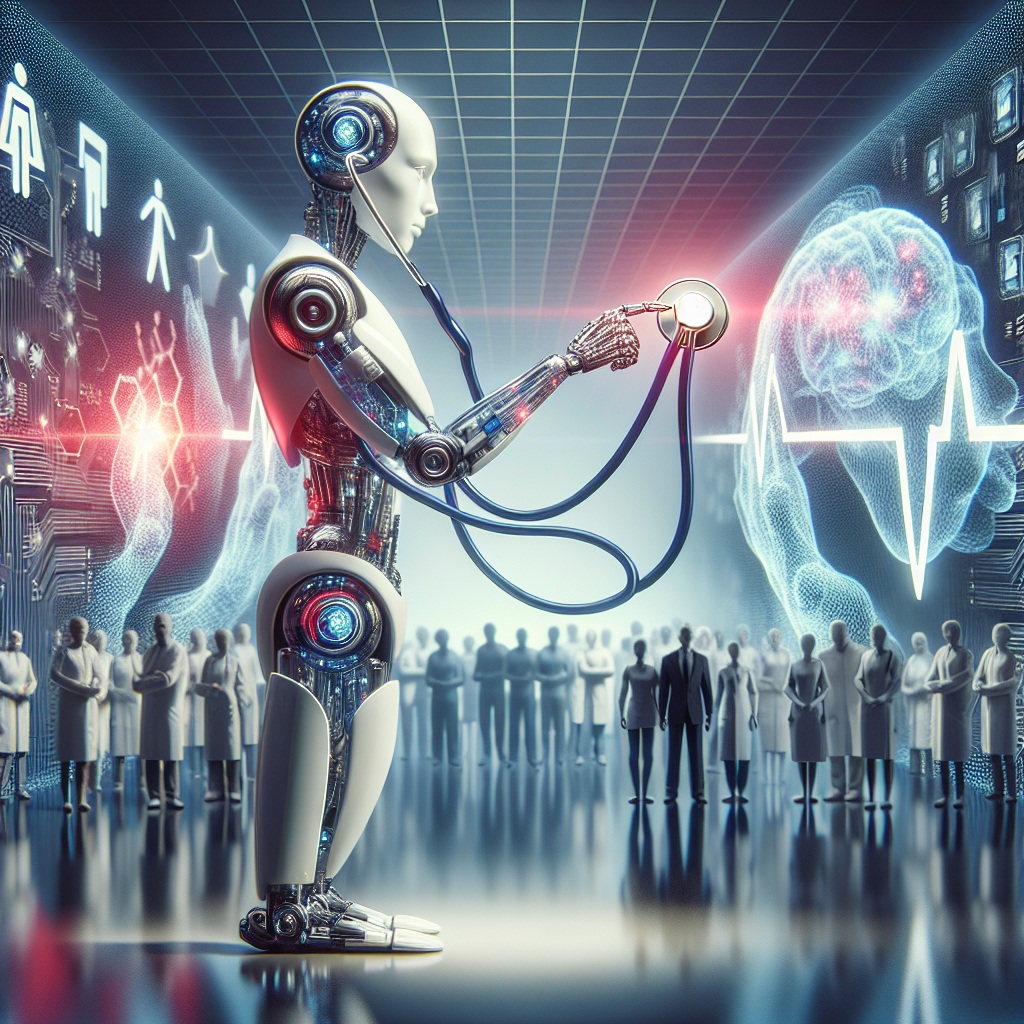Artificial intelligence (AI) has the potential to revolutionize healthcare by improving patient outcomes, reducing costs, and increasing efficiency. However, the integration of AI into healthcare policy presents a number of challenges, including privacy concerns, regulatory issues, and ethical considerations. In this article, we will explore the intersection of AI and healthcare policy, examining the current state of AI in healthcare, the implications for policy, and the potential benefits and risks of AI in healthcare.
The Current State of AI in Healthcare
AI is already being used in a variety of healthcare applications, from diagnostic tools to personalized medicine. Machine learning algorithms can analyze large amounts of data to identify patterns and make predictions, helping doctors make more accurate diagnoses and develop more effective treatment plans. For example, AI-powered imaging tools can detect early signs of diseases such as cancer, while natural language processing algorithms can analyze medical records to identify patients at risk for certain conditions.
In addition to diagnostic tools, AI is also being used to improve patient care and streamline administrative processes. Chatbots and virtual assistants can provide patients with information and support, while predictive analytics can help hospitals better manage resources and reduce wait times. AI-powered robots are even being used to assist with surgeries and deliver medications, reducing the risk of human error and improving patient outcomes.
Implications for Healthcare Policy
The integration of AI into healthcare policy presents a number of challenges and opportunities. On the one hand, AI has the potential to improve patient outcomes, reduce costs, and increase efficiency. By automating routine tasks and analyzing large amounts of data, AI can help doctors make more accurate diagnoses, develop personalized treatment plans, and identify patients at risk for certain conditions. This can lead to better outcomes for patients, lower costs for healthcare providers, and more efficient use of resources.
However, the use of AI in healthcare also raises a number of concerns, including privacy issues, regulatory challenges, and ethical considerations. For example, the use of AI-powered diagnostic tools raises questions about who is responsible for errors and how patient data is protected. In addition, the use of AI in healthcare may exacerbate existing health disparities, as certain populations may not have access to AI-powered tools or may be at risk of misdiagnosis due to biases in the data.
To address these challenges, policymakers need to develop regulations and guidelines that ensure the responsible use of AI in healthcare. This includes establishing standards for data privacy and security, ensuring transparency and accountability in AI algorithms, and addressing concerns about bias and discrimination. In addition, policymakers need to consider how AI will impact the healthcare workforce, including the need for new skills and training for healthcare professionals.
Benefits and Risks of AI in Healthcare
Despite the challenges, AI has the potential to bring significant benefits to healthcare. By improving patient outcomes, reducing costs, and increasing efficiency, AI can help address some of the biggest challenges facing the healthcare system today. For example, AI-powered diagnostic tools can help doctors make more accurate diagnoses, leading to better treatment outcomes and lower costs for patients. In addition, AI can help hospitals better manage resources and reduce wait times, leading to more efficient care delivery and improved patient satisfaction.
However, the use of AI in healthcare also presents a number of risks. For example, the use of AI-powered diagnostic tools raises concerns about accuracy and reliability, as well as questions about who is responsible for errors. In addition, the use of AI in healthcare may exacerbate existing health disparities, as certain populations may not have access to AI-powered tools or may be at risk of misdiagnosis due to biases in the data. Finally, the use of AI in healthcare raises ethical concerns, such as the potential for AI to replace human judgment and the need to ensure that AI algorithms are transparent and accountable.
FAQs
Q: What are some examples of AI in healthcare?
A: Some examples of AI in healthcare include diagnostic tools that can analyze medical images to detect early signs of diseases, virtual assistants that can provide patients with information and support, and predictive analytics tools that can help hospitals better manage resources and reduce wait times.
Q: What are some of the challenges of integrating AI into healthcare policy?
A: Some of the challenges of integrating AI into healthcare policy include privacy concerns, regulatory issues, and ethical considerations. Policymakers need to develop regulations and guidelines that ensure the responsible use of AI in healthcare, including standards for data privacy and security, transparency and accountability in AI algorithms, and addressing concerns about bias and discrimination.
Q: What are some of the benefits of AI in healthcare?
A: Some of the benefits of AI in healthcare include improved patient outcomes, reduced costs, and increased efficiency. By automating routine tasks, analyzing large amounts of data, and assisting with surgeries, AI can help doctors make more accurate diagnoses, develop personalized treatment plans, and improve patient care.
In conclusion, the integration of AI into healthcare policy presents both challenges and opportunities. While AI has the potential to revolutionize healthcare by improving patient outcomes, reducing costs, and increasing efficiency, policymakers need to address privacy concerns, regulatory issues, and ethical considerations to ensure the responsible use of AI in healthcare. By developing regulations and guidelines that promote transparency, accountability, and equity, policymakers can harness the power of AI to improve patient care and address some of the biggest challenges facing the healthcare system today.

